When Bollywood Resurrected The British Era
History has always been a subject that garnered immense, indulgent interest from mankind.
Published: Friday,Apr 14, 2017 23:50 PM GMT-06:00

History has always been a subject that garnered immense, indulgent interest from mankind. While interest and entertainment continue to walk hand in hand, Bollywood, who seeks to excel in the latter field, has calculatedly utilized this fact for their own benefit. Over the years, it has served as a crafty, efficient and a lucrative replacement for a time warp. Several periodic films have captivated and enthralled the audiences. Apart from the Mauryan and Mughal eras, the British era is also an undying rage among filmmakers. On Jallianwala Bagh Martyr's Memory Day, BollyCurry is here to recollect films that take us back to British India.
Bollywood has been in a long, and a committed relationship with the genre of romance and it really doesn't come as a surprise that the theme of love has been incorporated in modern historical films as well. For instance, in 1942: A Love Story (1994), a film that gave us several iconic numbers, is an earnest love story that is artfully captured, not too far away from the struggle for freedom. While the friction floating amidst the extremists and the Indian civil servants loyal to the colonial government is evident, the dulcet desires of love are shown developing against all odds. In another saga of love and tragedy, a story with the background of the unfortunate partition, Gadar: Ek Prem Katha (2001) follows the tale of a Muslim girl and a Sikh boy, who meet by chance and fall for each other. Reigning love and religious tolerance are preached, while the partition and its subsequent miseries are dealt with perfectly, leaving behind an impact that doesn't die over time. Encircling a coinciding theme is Phillauri (2017), which furtively highlights the contribution of poets and musicians towards independence by covering the romance of a forbidden poetess and a gifted singer, therefore shaming the misogynistic mindset that was prevalent in those times. The genres of comedy and the supernatural are both carried along with ease, alongside with an underlying reference to the fateful massacre at Amritsar.
Before the actual advent of the trend of 'biopics', the biographical genre was already much appreciated and talked about. Coming from this genre are Mangal Pandey: The Rising (2005) and Gandhi My Father (2007). The former film narrates the tale of a forgotten hero, and a legendary soldier, that led a mutiny, which was the driving force of the Revolt of 1857. With themes like friendship occupying supporting roles, the patriot is unveiled by leading the rebellion and being undeterred by having to sacrifice himself for his motherland. Armed with acclaimed acting, the film next in line presents a clash of ideologies as it traces the strenuous equation of the father of our nation and his son, Harilal Gandhi (Akshay Khanna). The movie depicts a journey of hate transforming into reverence and remorse. While the film does offer glimpses into the life of the Mahatma and his non-violent methods, his son is pitiable but not dislikeable.
We have had films set in a time when Britain enjoyed sovereignty that more or less accommodated the masses, especially the common man and his atrocious life as he tried to stand up against the tyrannical government. For example, Lagaan (2001) is the story of a group of villagers striking up a deal with the commanding officer promising a waiver of the heavy taxes imposed, if they won a cricket match against his men. The film covers their initial appalling state, their persistent efforts, and the triumphant win, with Bhuvan (Aamir Khan) at the forefront as the officer's sister comes to their aid, eventually finding herself in love with the protagonist. The rural backdrop, costumes and ways of life are all aptly put forth by the film. With a slightly different approach, the film Rang De Basanti (2006) is filled with adequate flashbacks and a recreation of the visionary revolutionaries and their lives. The newest addition to this cluster of movies is soon to be hitting the theatres. Begum Jaan (2017) is a film about a marginalized section of the society, sex workers, who according to the society, aren't eligible of respect. All of a sudden, everything changes as a fateful line is drawn, in the middle of the house where they lived and worked, however, there is a lot more yet to be revealed.
Following our discussion of the influence of the British era exercised over all these years in Bollywood, we are bound to opine that it has been a backdrop drawn infrequently by the Indian cinema. While we look forward to more entertaining revitalized versions of the pages of history, we are also looking for authentic facts and an undistorted past. Having said that, we are also awaiting to read your personal opinions on these periodic films and which one is your personal favourite. Give us your opinions in the comment section below!
Writer: Ramya K.
Editors: Myraa S. and Mohini N.
Graphics: Neha R.
Have a suggestion or comment for BollyCurry? Drop us a PM at BC_Dropbox today!
Your reaction
 Nice
Nice Awesome
Awesome Loved
Loved LOL
LOL OMG
OMG Cry
Cry Fail
Fail




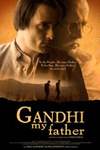

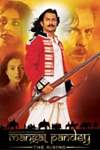
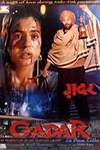
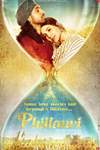


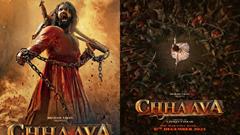
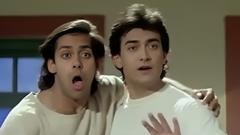

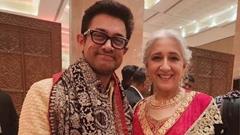



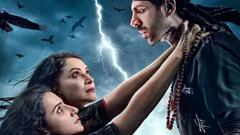


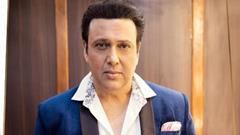

Comments (4)
Very well written and nicely presented! Made an awesome read!
7 years ago
Good write up!!!! After two great TV shows, hope the movie on Jhansi Ki Rani becomes a hit!!!!
7 years ago
Stupendous blend of history & Bollywood. Amazing writing!
7 years ago
Beautiful write-up! I love all the movies mentioned, and kudos to the team for this piece!
7 years ago